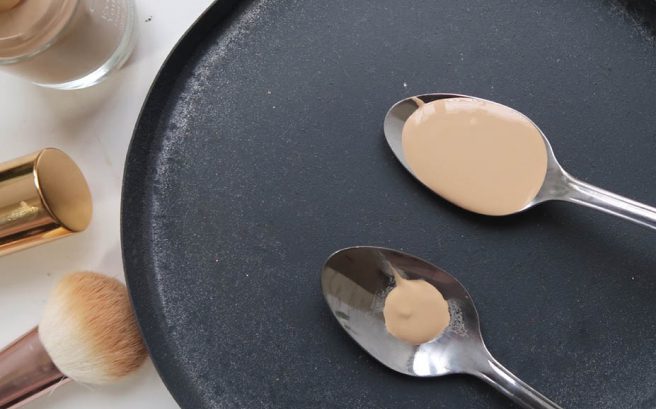Posted by The EVY Sweden Team on 15th Feb 2014
Is SPF in makeup enough to keep your skin safe from sun damage?
The SPF subject is still hugely misunderstood. SPF in cosmetics seems even more confusing, so it doesn’t surprise us to see the big question, “is SPF in makeup enough?” coming up so often. Many women trust their foundation or powder to provide the protection they need. This is because brands are trying to sell you their newest foundation/ powder by emphasising the fact they have SPF. This is basically false ( even dangerous) marketing as you are not protected anywhere near as much as you might think. In a recent interview, DR Chris Flower of the CTPA (The Cosmetic, Toiletry & Perfumery Association acts as the voice of the UK industry representing all types of companies involved in making, supplying and selling cosmetic and personal care products) said: “Cosmetic manufacturers put SPF into products in recognition of the fact that incidental exposure to sunlight can damage the skin”.
Sure, but many women out there don’t think about it this way, particularly when marketing emphasises the fact foundation has SPF protection as a huge selling point. We speak to many misinformed consumers every day ! We feel like shouting this from the rooftops; Do not to rely on your makeup for sun protection!

MAKE UP WITH SPF IS NOT CLASSIFIED AS SUNSCREEN.
Sun protection in makeup is secondary and those products are produced and sold as makeup first, the regulations are different. Notice that your make up product doesn’t state what amount you need to use to achieve the protection stated on the bottle. It doesn’t have to as it’s not sold as a sun protection product.
Most of us use a tiny amount of foundation. Some rub most of it off when using their fingers to blend the small amount they squeezed out of the tub. Even when you use a brush or a blender, the layer of your foundation is not thick enough to provide the SPF protection it states on the bottle.
HOW MUCH DO YOU NEED TO BE PROTECTED? AND HOW MUCH DO WE USE?
With sun screen products, there is a recommended amount you’d need to use to achieve the level of protection that the products claim to give you. In the beauty industry, the calculation of SPF protection is based on the standard application of the product which is 2 milligrams of product per square centimetre of skin. Take into account the average face size according to experts you need to use about a teaspoon of sun protection to achieve the protection stated on the bottle. If you want to get the protection from your foundation to the same level of protection as it says on the bottle, you need to use the same rule when it comes to the amount of product you use, but that’s not going to look good ! In reality, lets say you are using spf 50 that equals 98% of UVB protection and you use half of the amount, you would get 49%. That would actually equal SPF 2 and not SPF 25 ! So we decided to show you and apply onto one of our team members face enough foundation to achieve the protection stated on the bottle.
WHAT ABOUT REAPPLICATION?
Let’s not forget that you will also have to reapply your foundation after two hours which are the general recommendations for sunscreen.! Who does that? Is it even possible with a make up product? So as this also goes for make-up, makes it even more crazy to market make up with SPF.
WHAT ABOUT SPF IN MOISTURISERS?
I’d say that it’s better if you go by the SPF in your moisturiser than your makeup but here is what the British Association of Dermatologists has to say on the matter. “A moisturiser with an SPF will help protect you against small amounts of UV exposure, such as when you walk to the car or pop outside to hang out the washing, but sunscreen is better suited for a longer, more deliberate UV exposure, such as spending your lunch hour outside.”
And also “SPF used in moisturisers are tested the same way as sunscreens, so an SPF 15 moisturiser should provide an SPF of 15. However, these formulas are less likely to be rub-resistant and water-resistant, and most importantly are likely to be applied a lot more thinly than sunscreen. They, therefore, are unlikely to offer the same level of protection.”
Everyday sun protection products are the answer !
